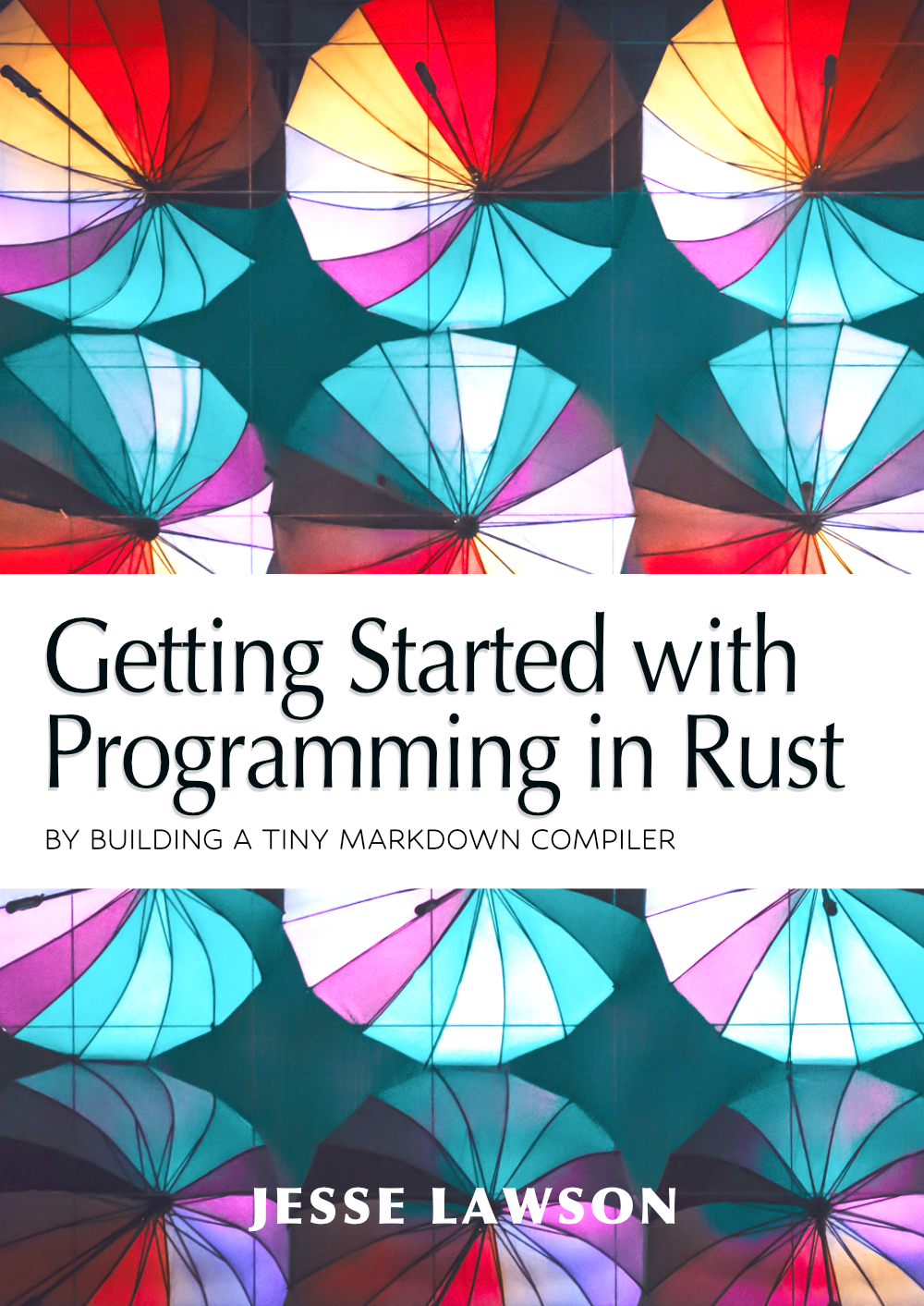Challenges
I hope you’ve enjoyed this experience with Rust, because if you don’t enjoy it at
this point I really don’t think you’ll enjoy what comes after this: traits and
lifetimes and, depending on what you’re building, mutexes and unsafe and all
sorts of little goodies. We’ve really only begun to scratch the surface of
what you can do with Rust!
As far as our tiny Markdown compiler goes, I’ve added some challenges below for you to continue on your journey. Do note that you will have to do some self-study to solve these. The Official Rust Book is a great place to start.
I’m also working on a follow-up book to this one, in which we build out the Campfire compiler. If it’s already out and this is still here, can you please let me know? Thanks!
Challenges
At the end of the
match first_char.pop()block, we have to repeat ourselves by checking whether theptagorhtagare open. How could you encapsulate this logic in a function to better adhere to the DRY principle?The way we are opening and reading the input file is not the same as what you find in the Rust docs for
read_lineshere. How (and why) is the linked Rust code different?How could you add in some other HTML tags at the top of your output file, like a
<style>tag or even a link to a CSS file before you iterate over each line from the input file?How would you add support for more than one character as the flag? For example, how could you parse
## This is a second-order heading? (Hint: thefirst_charis only the first character ofline_contentsbecause we used.take(1)…)Try to add support for
<em>(asterisks) and<strong>(double asterisks)When it comes to error checking, Rust has evolved over time to be less verbose. Try out some of the ways Rust lets you skip the verbosity in error-handing by updating parts of the code we wrote to manually unwrap Result objects.
This tutorial hasn’t even touched on one of the coolest parts of Cargo–integrated testing built right into the ecosystem! Challenge yourself to use some TDD practices on your next tinker project in Rust.
What now?
That’s it. That’s the end of the book. I hope you enjoyed the journey. For more about Rust, consider Rust By Example to learn more about the language and High Assurance Rust for a very deep dive into Rust and systems engineering. I have another book about Rust in the works that will immediately follow this one under active development. Stay connected on social media
-Jesse
